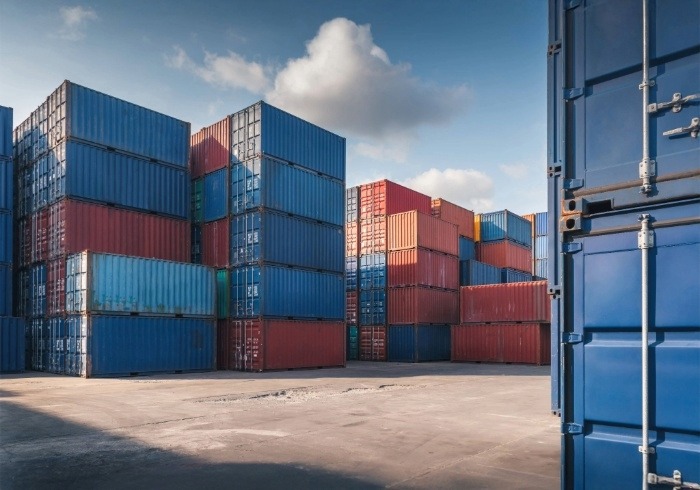Lawyers representing Trafigura have accused Prateek Gupta of suppressing or destroying messages that would have shown his involvement in a fraudulent nickel trading scheme.
Indian businessman Gupta was sued by Trafigura in 2023 for selling containers purportedly containing LME-grade nickel but that in fact held near-worthless material, leading to losses of at least US$600mn. Cargoes would generally be sold to Trafigura and repurchased by companies owned by or known to Gupta.
During cross-examination in court today, Gupta – appearing remotely from the UAE – said the losses were part of an arrangement devised by Trafigura and that he was “just following instructions” from members of its nickel trading desk, who deny the claims.
Gupta told the court he was not involved in the day-to-day business between his companies – collectively known as UIL – and Trafigura. He said he received only “sporadic information” on the transactions, with operations teams at Trafigura and UIL handling the logistical details.
Lawyer Nathan Pillow, representing Trafigura, asked him: “Someone had to decide what to put in each container, didn’t they? And they’d need to know which containers to ship on what route?”
Gupta replied: “Potentially yes.”
Pillow asked Gupta how those aspects were arranged, and where the documents “recording this intricate scheme have gone”, asking: “That can’t have all been done on the telephone, can it?”
“I don’t know how it was done,” Gupta said. He said that there “must have” been WhatsApp communications between those involved but that he does not know “if there was anything relevant to disclose”.
Pillow alleged that Gupta has “suppressed or destroyed these documents from disclosure because they show the scheme was carried out on the defendants’ side”, without the knowledge of Trafigura.
The lawyer said those messages “would have revealed that this arrangement was entirely your idea”.
Gupta said the allegations were “not correct”.
“Just following instructions”
Court documents submitted by Gupta said he met with two then-Trafigura traders, Socrates Economou and Harshdeep Bhatia, at a hotel in Dubai in June 2019.
Gupta’s UD Group had already been trading LME-grade nickel with Trafigura, but he said Economou was eager to grow volumes and suggested selling other metals and nickel alloys in order to “grow Trafigura’s position in the market”.
However, with Trafigura unable to use existing financing lines for lower-grade nickel, Gupta said Economou told him he would consider how to structure the arrangement and “sell it to his superiors internally”.
Trafigura’s lawyer asked Gupta whether he believed Economou had therefore “proposed to you a massive fraudulent arrangement” during that June 2019 meeting.
Pillow said it would have been obvious that documents such as contracts would have to be forged in order for Trafigura to obtain financing from its bank, Citi, and for the scheme to work.
But Gupta said he did not know Trafigura’s financing line only covered LME-grade nickel, that the “modalities were not discussed” and that he “was just following instructions”.
When asked who knew about the details of the trading scheme, Gupta said the two Trafigura traders told him to “keep it tight”.
Pillow asked why that would be the case if the trader’s senior management were aware.
“Those were the instructions that they gave me,” Gupta replied, adding that he did not know who within Trafigura was aware.
Gupta said he was also instructed to restrict information to “a limited audience” among the UIL companies, meaning there was no written record of the alleged arrangement.
He denied Pillow’s claim that the lack of records is because it was a “dishonest” scheme targeting Trafigura.
Pillow presented several contracts seemingly signed by Gupta as showing his involvement in the scheme. The contracts were signed in his name on behalf of TMT Metals companies in Switzerland and the UK, both of which are defendants in the case.
The lawyer said the documents are “part of a systematic procedure that you implemented… to sign false contracts, knowing they were going to deceive people”.
Gupta said it was his electronic signature, but that he did not sign the documents and does not know who did.
He said he suspected the company’s chief financial officer, Manish Parmar, had signed the contracts in his name. Parmer was “potentially” aware that the cargoes did not contain LME-grade nickel, Gupta said.
“Was he on a frolic of his own, do you think?” asked Pillow.
“I don’t know,” Gupta replied.
“Grand reckoning” of funds
Gupta’s submissions to court said that in September 2020, Trafigura presented an idea to introduce additional companies into the trading scheme.
“I believe this was in part to reduce the risk of red flags being raised with its financing bank, as a result of a high volume of trades being conducted with only the UD Group entities, which were all under common ownership,” Gupta said.
He said two of those companies, New Alloys and Mine Craft, were introduced as sellers, while the third, Spring Metals, would act as a buyer.
His filings said he has no commercial interest in the companies, but has built up a close working relationship over many years of commodity trading.
Pillow asked Gupta whether those companies were in fact “under your ultimate control when they were trading with Trafigura”, with friends allowing him to use them “as though they were your own”.
Otherwise, he asked, what did they do with the funds received from Trafigura for the sales, “which were obviously far in excess of the values of the cargoes they had shipped?”
There must be “some grand reckoning of all these money flows” to ensure funds ended up in the right place after the trades were concluded, Pillow said.
Gupta said he did not know, denied he was providing funds to front the repurchases from Trafigura and said he was not in control of the companies.
The trial continues.







